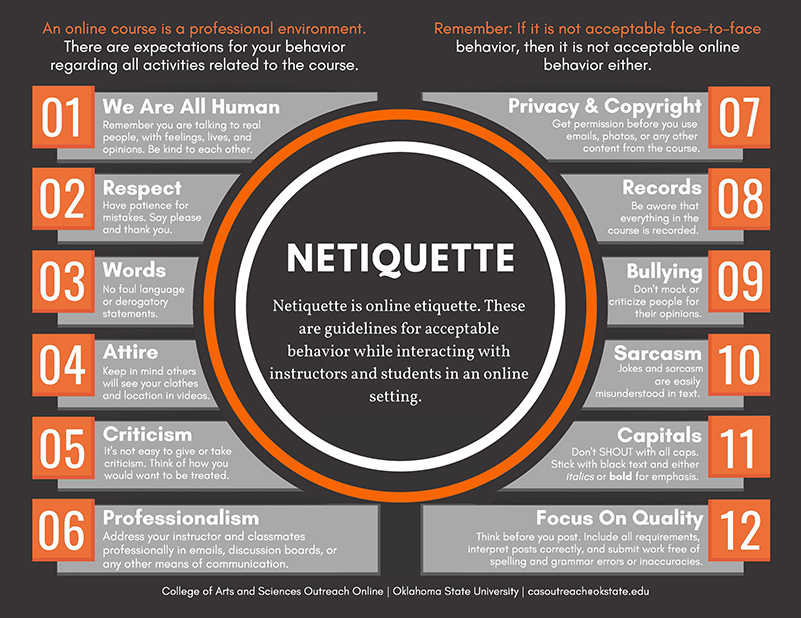Online Students
The College of Arts and Sciences is dedicated to student success, and online students are no exception. Each course is carefully constructed to ensure students have the same opportunity for success as they would in a traditional, face-to-face course. To help with this endeavor, we have compiled tips for success in an online course, expectations for participation and information on Canvas, OSU’s learning management system for course delivery. Take a moment to review this collection of resources to help you prepare for an online experience.
Get motivated
Taking on online course requires constant self-motivation. No one is going to force you to complete your assignments. And often, no one is in your face reminding you something is due or asking you where your homework is. It is entirely up to you to make sure you are completing the homework.
Read the syllabus
It is important to read the syllabus in any course. But in an online course, the syllabus might contain everything you need to be successful. It’s not just a required document for the instructor, it’s for you!
Manage your time
Go through the course schedule and create reminders for important deadlines. Get organized. Set aside designated time in your week to work on the course. Stay on top of the work so you don’t fall behind.
Check in and participate
Check in with your online course and read your emails every day. It’s the only way the instructor can reach you, so stay connected. Also, don’t be afraid to video yourself or join in online discussions. More participation means more learning.
Find a quiet place to study
It is very easy to get distracted from the course when you are not sitting in a classroom. Find a place where you can focus and have little to no distractions while you participate in course activities.
Do not assume
online is easier
Assuming an online course will be easier or have less work than a traditional course is a mistake. Going into a course with this assumption sets you up for anger and frustration. Online courses go on your transcript just like any other course, so expect equal expectations.
Ask for help
It is up to you to ask questions when you need help. Answers are just an email away, email your instructor!
Be professional
Do not make the mistake of forgetting your interactions for the course are monitored by a nationally accredited institution. Always remember: If it is not acceptable face-to-face behavior, then it is not acceptable online either.
Understand academic integrity
Not everything on the internet is free, and not all course materials can be shared. Never take others' words or thoughts without referencing their work. Uphold your own high standards and avoid cheating and shortcuts.
Know the technology requirements
You should have access to a computer, printer, and the internet on a daily basis. Some online courses have additional proctoring fees or required technologies (apps, software, social media accounts) in order to complete the course. Make sure on week 1 that you can meet all course expectations.
Netiquette Guidelines
Netiquette, or online etiquette, is appropriate behavior while interacting in a professional, online course. CAS has 12 guidelines to help foster a positive environment for all online students.

Canvas Resources
Once enrolled, students access their online courses through Canvas. This learning management system is equipped with technologies geared toward student success, such as a mobile app for convenient accass and 24/7 technical support. For more information and resources regarding Canvas.
OSU-IT Canvas











